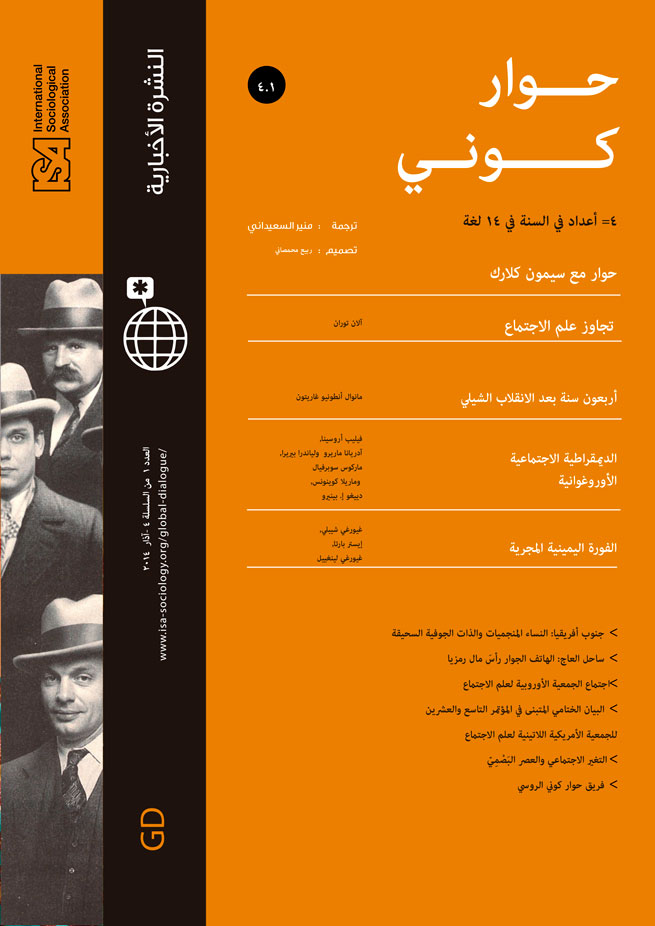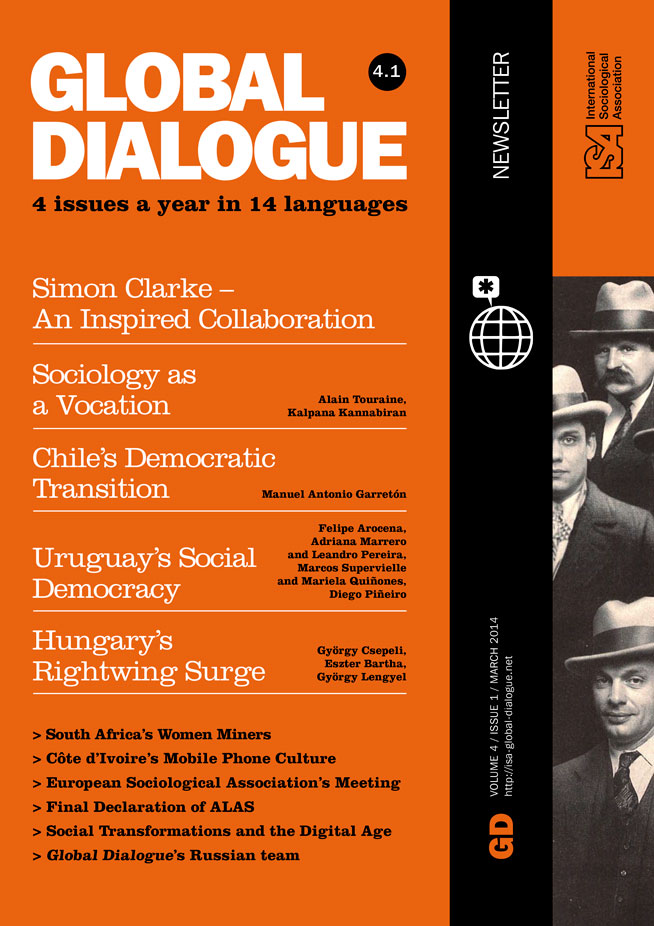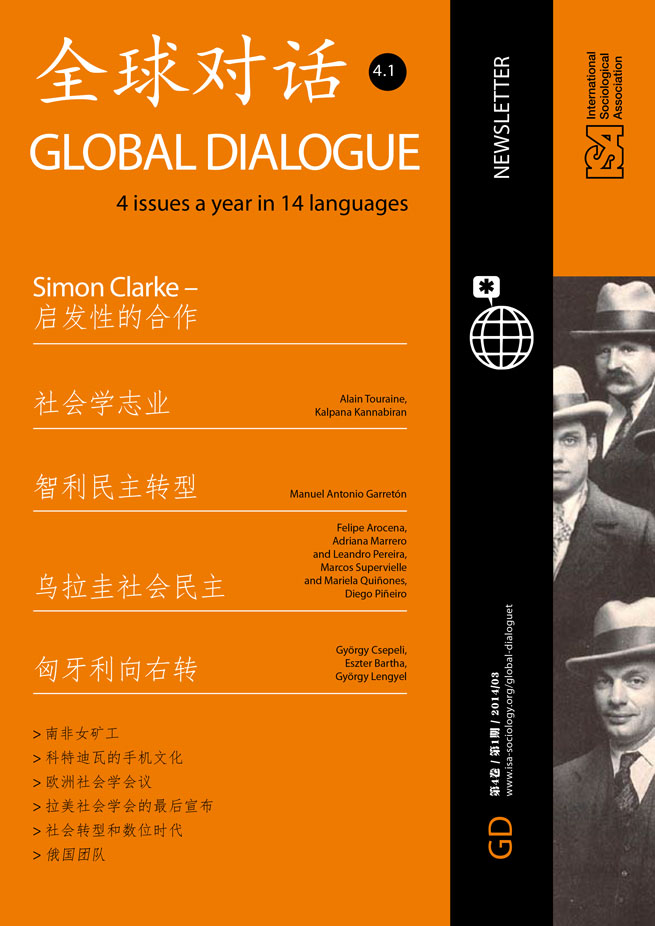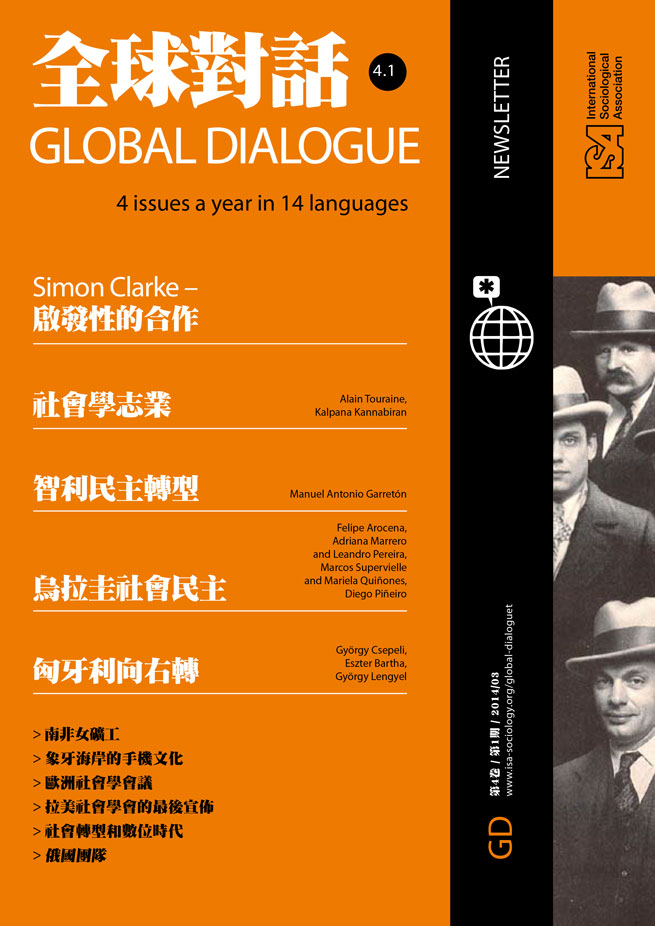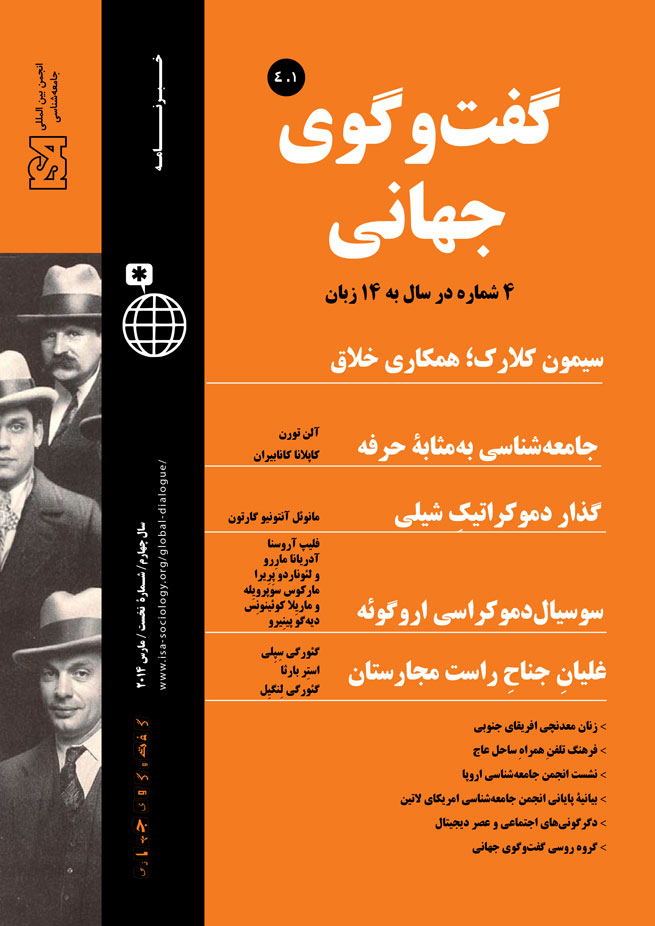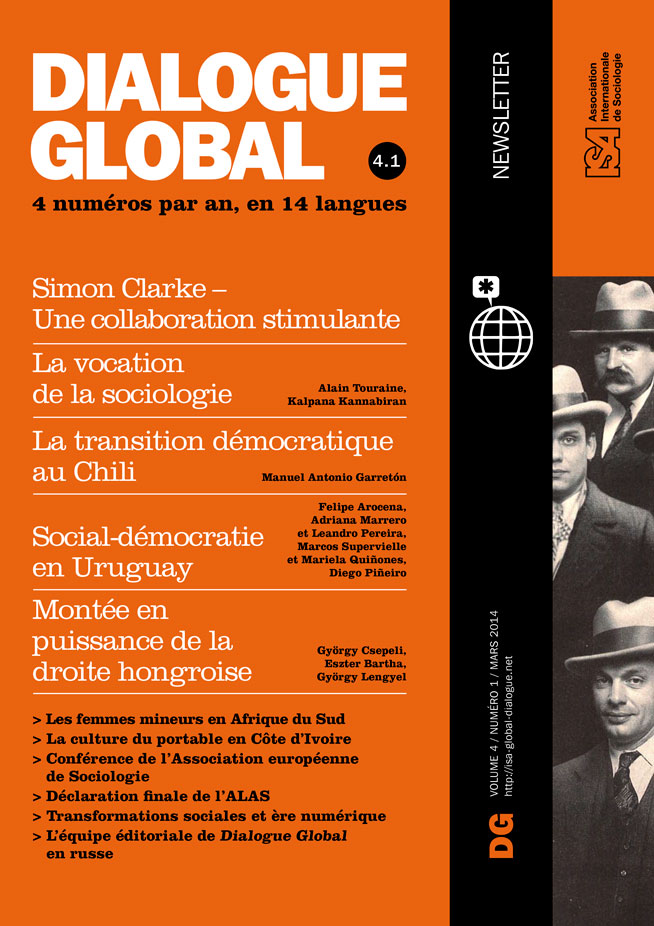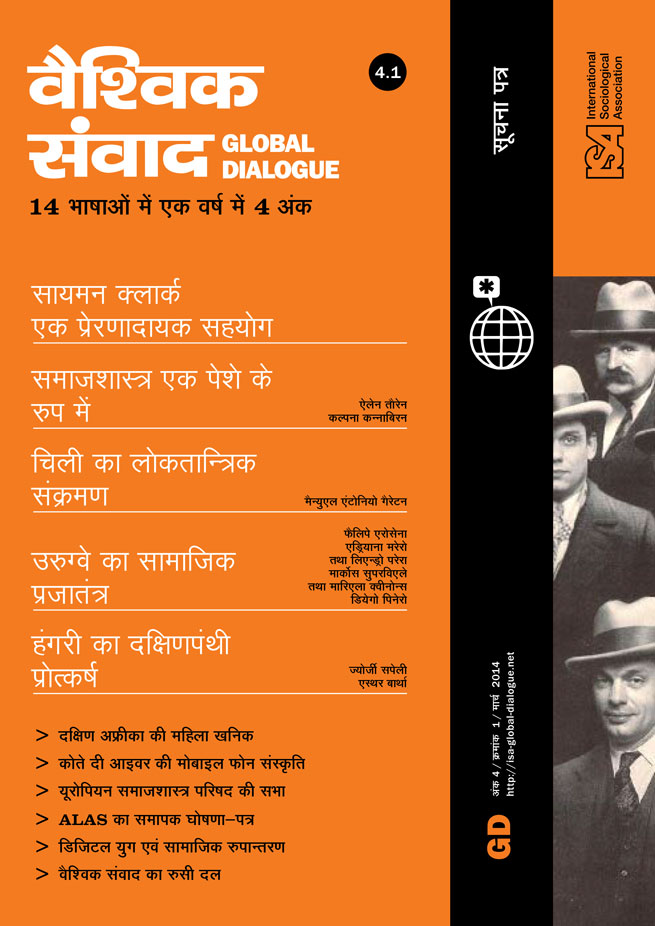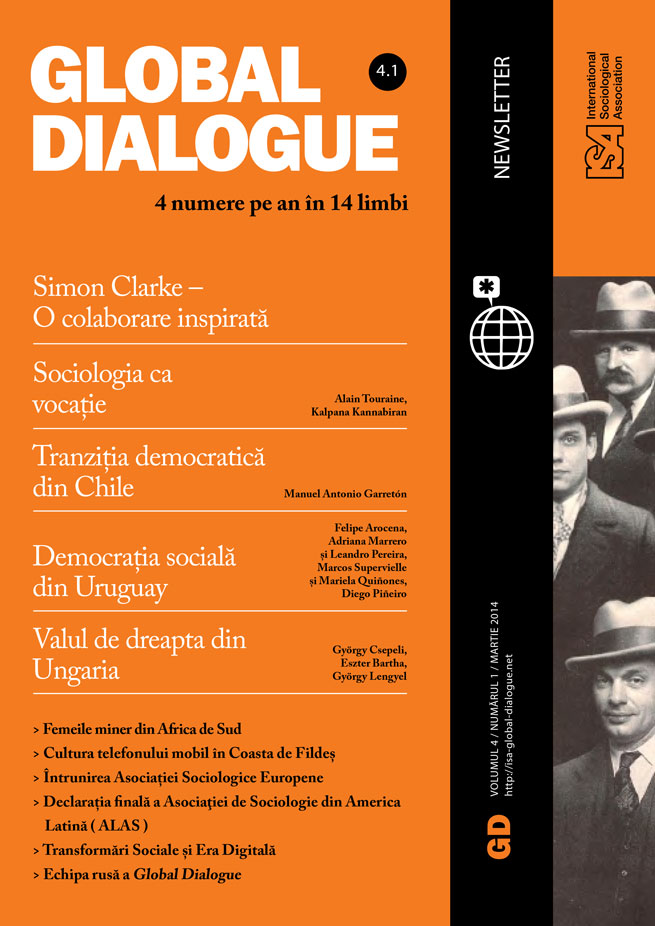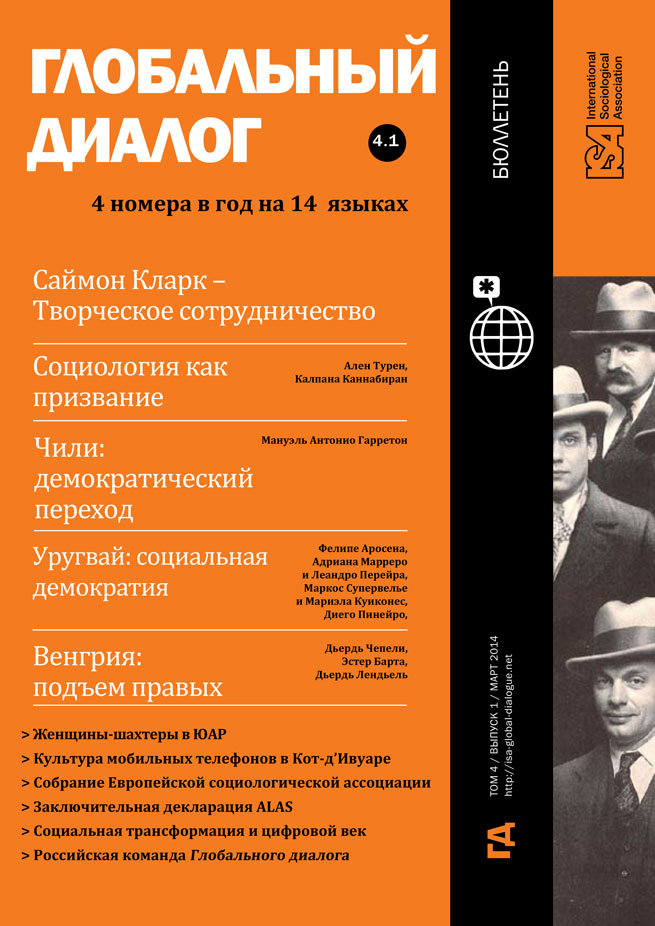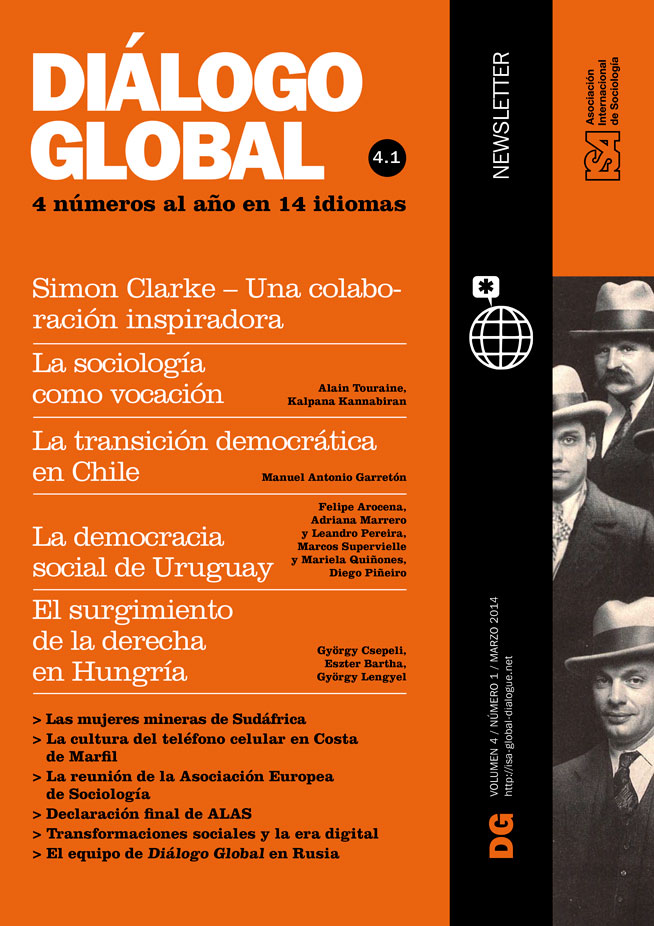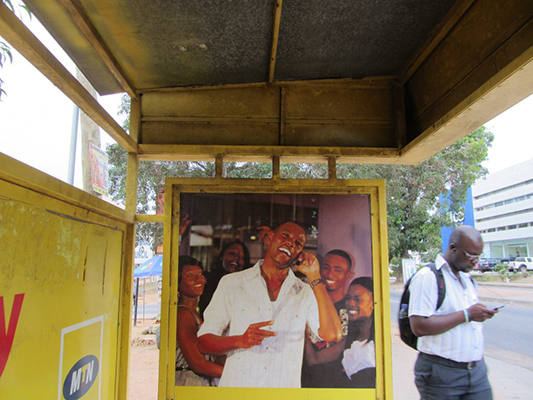Read more about Notes from the Field

South Africa: Women Miners and the Underground Self
by Asanda Benya
February 10, 2014
A pitiable sight in Adjamé’s black[1] is the section for used and stolen mobile phones. Hundreds of men line up single-file on either side of a major thoroughfare. Each man has one or several phones on his person which he flashes at passers-by, desperate to stand out from the mass. They whisper, hiss, or call out; some make silent appeals with their face or hands, others follow for a couple of paces, bargaining down from their starting price before being asked. These hawkers range in age and dress from barely teenagers in grubby tees and frightened faces, smooth, self-aware twenty- and thirty-somethings, and tired-looking men past their prime in respectable, casual Friday-type shirts and slacks. They offer dinosaur relics and bona fide smartphones equipped with technology that only a fraction of Abidjan’s population will ever use. If supply indicates anything about demand, the market for mobile phones in Abidjan, Côte d’Ivoire is ringing off the hook.
In researching the livelihoods and lifestyles of underemployed Abidjanais men from 2008 to 2009, I found a particularly rich resource in the city’s mobile phone culture. Across the city billboards for the largest phone companies imitated music video stills, featuring hip men accessorized by doting divas – and a phone. These suggestive images are effective: country-wide there are over 17 million mobile telephone subscribers in a population of 22.4 million, whereas 42% of Ivoirians live below the poverty line. Widely available at a full range of prices, mobile phones are generally accessible among deeply peripheral populations who use them more symbolically than as functional devices. Even cheap phones can offer a veneer of bling despite limited functional capabilities, a fact not lost on marketers who embellish basic models with bright colors or metallic faceplates. The cheapest second-hand phone can go for as little as 5,000 FCFA.[2]
When I met Calice, a hard-up twenty-three-year-old juice vendor, the headphones in his ears resembled an iPhone advertisement. It was only a look: his phone had been out of batteries for some time and he could not afford new ones. The accessory, however, cost him 27,000 FCFA upfront and he was paying the rest of its 40,000 FCFA cost in installments.[3] Especially among men, phones are a must-have accessory. In maquis [open-air bars], they are prominently displayed on tables, silently or playing music, while their owners drink. As status markers they are a relatively democratic means of gaining visibility and accessing the world of modern communicative technology, and have come to play a significant role in Abidjanais sociality.
Phones counter the anonymity of peripheral life. A name and phone number, and sometimes only a phone number, make for common graffiti around Abidjan. Numbers are scrawled on street-side stalls, in the backs of taxis and on maquis tables, perhaps with the distant hope that someone, somewhere, is looking for a good time. A friend employed in one of Abidjan’s foreign embassies returned from his last day of work with his shirt marked up not with goodbye wishes, but phone numbers. Phone numbers are one of few forms of documentation for populations who live lives under a guise of informality: unregistered, undocumented, unseen. They signal participation in modernity as well as in local and distant social networks, and your “contacts” list indicates status. During one conversation, a local musician named Doug MC pulled out a magazine featuring an Ivoirian artist who performs in New York City. He showed me the man’s US number on his phone, and boasted that his friend often called him. Moreover, receiving a call is proof that someone cares enough to spend the money to call you. When it happens in public everyone around bears witness to this fact: at weddings, in classrooms, amidst somber meetings and at official functions phones go off, always with ringers set on high volume.
If the Western stereotype is that a man needs a ride to snag a woman, in Abidjan he needs a phone (and if and when he has her, he should probably buy her one too, credit included). As one of my friends remarked, this is both a blessing and a curse: a man buys his girlfriend a phone not just to impress but to keep tabs on her, and it comes with the expectation that she will answer his call at all times. Phones define the realm of the possible for poor men’s consumption capabilities, and even among the most peripheral populations most men had at least one; only the most desperate cases were without. To have a phone was to have respect. When I asked Erick if he ever wanted to upgrade his 5,000 FCFA mobile phone, he replied, “Of course I want to change. I am a human being, every person is ambitious.” And Samuel explained that as a man he has “biological, sentimental, and social needs” that he “must fulfill.” He went on, “Everyone enjoys a little pleasure. I, for example, have a Sony Ericsson mobile phone.” And the more phones the better: there is nothing bizarre about carrying around two or three phones, the justification being that each phone corresponds to a different network, so you can call friends within various networks at the cheapest rate.
However good they may be as decoration, entertainment, or to receive calls, peripheral Abidjanais seldom used their phones to make calls. Only the caller pays, and they rarely had credit. Calls I received tended to be from cabines – a ubiquitous stand comprised of a small wooden bench and table, typically manned by a young man or woman with a mobile and bulk credit from all the networks. Credit is available for up to 100,000 FCFA, and the more you purchase at once, the more bonus, or free credit you earn. Alternatively, the person calling immediately hung up (expecting me to call back). Or I would be “beeped” – sent a free automatic text message requesting I call the number back. And if expecting a call, a friend or partner can send credit to the caller via a cabine. But unlike tag, you’re it, who calls whom indicates the hierarchy between the caller and the called. Those with more money call those who have less in the same manner that African “big men” maintain status vis-à-vis patronage relations. Financial and in-kind support ensures not only dominance, but a social debt.
[1] Known as the black (the English word was used here), this part of Adjamé – Abidjan’s largest market – was known to be shady, often peddling in stolen goods.
[2] At the time of my research 1 USD was approximately 500 FCFA.
[3] Men often justifi ed exorbitant phone purchases by stating that this was a way to keep their savings, and if they needed to cash in they could trade the phone for a cheaper model. None of these men had bank accounts.
Jordanna Matlon, Institute for Advanced Study in Toulouse, France
This issue is not available yet in this language.
Request to be notified when the issue is available in your language.
If you prefer, you can access previous issues available in your language:
